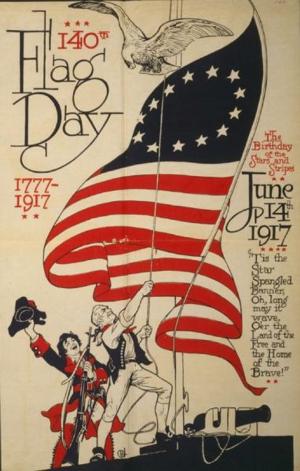| Author: | Eva March Tappan | ISBN: | 9781465604392 |
| Publisher: | Library of Alexandria | Publication: | March 8, 2015 |
| Imprint: | Language: | English |
| Author: | Eva March Tappan |
| ISBN: | 9781465604392 |
| Publisher: | Library of Alexandria |
| Publication: | March 8, 2015 |
| Imprint: | |
| Language: | English |
A LONG, long time ago—perhaps three thousand years or more—there was a man named Ho'mer. No one knows much about him; but there are legends that he was born on the island of Chi'os and that he was blind. He wandered about the land, homeless, but welcome wherever he chose to go, because he was a poet. He once described how a blind poet was treated at a great banquet, and probably that is the way in which people treated him. He said that when the feast was ready, a page was sent to lead in the honored guest. A silver-studded chair was brought forward for him and set against a pillar. On the pillar the page hung his harp, so near him that he could touch it if he wished. A little table was placed before him, and on it was put a tray spread with food and wine. When the feasting was at an end, he sang a glorious song of the mighty deeds of men. The Greeks liked to hear stories just as well as the people of to-day, and they shouted with delight. Then they all went out to the race-course, the page leading the blind singer carefully along the way. There were races and wrestling matches and boxing and throwing of the discus. After this, the poet took his harp and stepped to the centre of the circle. The young men gathered around him eagerly, and he chanted a story of A'res, the war god, and Aph-ro-di'te, goddess of beauty and love. Homer composed two great poems. One is the Il'i-ad, which takes its name from Il'i-um, or Troy, a town in Asia Minor. For ten long years the Greeks tried to capture Ilium. They had good reason for waging war against the Tro'jans, for Par'is, son of the king of Troy, had stolen away the Grecian Helen, the most beautiful woman in the world. She was the wife of a Greek prince named Men-e-la'us; and the other princes of Greece joined him in attacking Troy. They took some smaller places round about and divided the booty, as the custom was. In the tenth year of the war, A-chil'les and Ag-a-mem'non, two of the greatest of the princes, quarreled about one of these divisions, and here the Iliad begins. Achilles was so angry that he took his followers, the Myr'mi-dons, left the camp, and declared that he would have nothing more to do with the war, he would return to Greece. Now the Greeks were in trouble, indeed, for Achilles was their most valiant leader, and his men were exceedingly brave soldiers. They sent his friend Pa-tro'clus to beg him to come back. Achilles would not yield, even to him; but he finally agreed to allow his followers to return and also to lend his armor and equipments to Patroclus.
A LONG, long time ago—perhaps three thousand years or more—there was a man named Ho'mer. No one knows much about him; but there are legends that he was born on the island of Chi'os and that he was blind. He wandered about the land, homeless, but welcome wherever he chose to go, because he was a poet. He once described how a blind poet was treated at a great banquet, and probably that is the way in which people treated him. He said that when the feast was ready, a page was sent to lead in the honored guest. A silver-studded chair was brought forward for him and set against a pillar. On the pillar the page hung his harp, so near him that he could touch it if he wished. A little table was placed before him, and on it was put a tray spread with food and wine. When the feasting was at an end, he sang a glorious song of the mighty deeds of men. The Greeks liked to hear stories just as well as the people of to-day, and they shouted with delight. Then they all went out to the race-course, the page leading the blind singer carefully along the way. There were races and wrestling matches and boxing and throwing of the discus. After this, the poet took his harp and stepped to the centre of the circle. The young men gathered around him eagerly, and he chanted a story of A'res, the war god, and Aph-ro-di'te, goddess of beauty and love. Homer composed two great poems. One is the Il'i-ad, which takes its name from Il'i-um, or Troy, a town in Asia Minor. For ten long years the Greeks tried to capture Ilium. They had good reason for waging war against the Tro'jans, for Par'is, son of the king of Troy, had stolen away the Grecian Helen, the most beautiful woman in the world. She was the wife of a Greek prince named Men-e-la'us; and the other princes of Greece joined him in attacking Troy. They took some smaller places round about and divided the booty, as the custom was. In the tenth year of the war, A-chil'les and Ag-a-mem'non, two of the greatest of the princes, quarreled about one of these divisions, and here the Iliad begins. Achilles was so angry that he took his followers, the Myr'mi-dons, left the camp, and declared that he would have nothing more to do with the war, he would return to Greece. Now the Greeks were in trouble, indeed, for Achilles was their most valiant leader, and his men were exceedingly brave soldiers. They sent his friend Pa-tro'clus to beg him to come back. Achilles would not yield, even to him; but he finally agreed to allow his followers to return and also to lend his armor and equipments to Patroclus.















